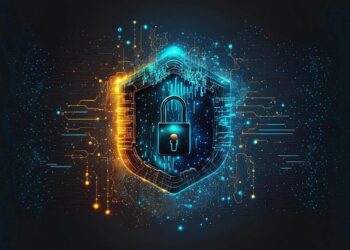DALLAS, Texas: Government and business leaders wrapped up a cybersecurity conference here Wednesday agreeing that only global cooperation can protect a vulnerable Internet and interconnected world.
“When it comes to our readiness to protect ourselves from cyberattacks we are not prepared, we are not even close to ready,” said Tom Ridge, who headed the Department of Homeland Security under former US president George W. Bush.
Cyberspace has emerged in the 21st century as a new domain along with land, air, sea and space, Ridge told the 400 participants from 40 countries attending the first Worldwide Cybersecurity Summit hosted by the EastWest Institute.
“It’s time, one might argue past time, to build the trust and establish the laws, treaties and agreements for the cyberspace domain in this 21st century,” he said. “Collective action is and must be our goal.”
During three days of talks here, government officials, business leaders and cybersecurity experts discussed how to cope with the myriad threats to computer networks — from criminal hackers out for financial gain to cyber terrorists seeking to wreak havoc, to nations with cyber warfare capabilities.
While the dangers to power grids, financial markets, transportation systems and other critical infrastructure can never be eliminated entirely, they agreed on a number of steps needed to protect the world’s digital architecture.
“We need to exchange — and there are certain conditions of course — information about vulnerabilities, threats, attacks,” said Patrick Pailloux, director general of France’s Network and Information Security Agency.
“We should conduct joint cyber defense exercises,” he said.
Besides international cooperation, the participants, who included officials from cyber powers such as Britain, China and Russia in addition to the United States and France, repeatedly stressed the need for the public and the private sectors to work closely on cybersecurity.
“Each government has to enlist the support of its private sector for cybersecurity,” said Kamlesh Bajaj, chief executive of the Data Security Council of India.
“Real cybersecurity will only happen if there’s cooperation,” Bajaj said. “No government can fight cybercrime in isolation.”
White House cybersecurity coordinator Howard Schmidt said governments and the private sector needed to be more transparent about cyberattacks.
“How can you do partnerships with private industry, how can you do it with other governments when everything’s behind a veil of secrecy?” he asked.
India’s Bajaj warned that while much can be done to protect the world’s digital infrastructure from electronic attacks, “vulnerabilities will continue to exist.
“Cybersecurity is not a technology problem that can be solved,” he said. “It is a risk to be managed.”
Protecting user privacy and educating policy-makers and the public to the seriousness of the threats in cyberspace were cited by participants as other major challenges.
“When you mention cybersecurity to most members of Congress their eyes just glaze over,” said Michael McCaul, a Republican member of the US House of Representatives from Texas. “Yet it’s one of the most serious issues that we face in this century.”
Speaking of cyber espionage, McCaul said “if we caught agents of a foreign power breaking into the Pentagon, stealing physical files, file cabinets, you can imagine the response from the media.
“And yet that’s happening in the virtual world every day,” he said.
“One of things that we lack when we talk about the cyber threat is imagery,” added William Baker, Canada’s deputy minister for public safety.
“In the case of cyber crime… what does cyber blood look like?” he asked.
Retired US Air Force Lieutenant General Harry Raduege, former director of the US Defense Information Systems Agency, pointedly reminded participants that reaching a broad consensus on cybersecurity issues will not be easy.
“When I think of the rules of the road, some people drive on the left side of the street and some people on the right so that can cause some healthy collisions,” Raduege said.









